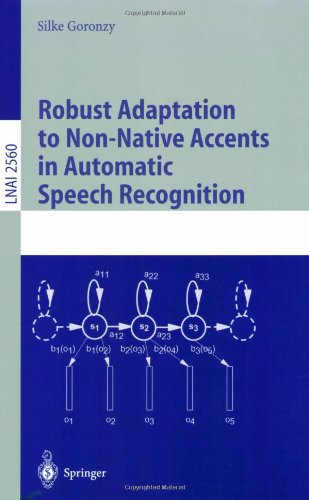

Most ebook files are in PDF format, so you can easily read them using various software such as Foxit Reader or directly on the Google Chrome browser.
Some ebook files are released by publishers in other formats such as .awz, .mobi, .epub, .fb2, etc. You may need to install specific software to read these formats on mobile/PC, such as Calibre.
Please read the tutorial at this link: https://ebookbell.com/faq
We offer FREE conversion to the popular formats you request; however, this may take some time. Therefore, right after payment, please email us, and we will try to provide the service as quickly as possible.
For some exceptional file formats or broken links (if any), please refrain from opening any disputes. Instead, email us first, and we will try to assist within a maximum of 6 hours.
EbookBell Team

5.0
40 reviewsSpeech recognition technology is being increasingly employed in human-machine interfaces. A remaining problem however is the robustness of this technology to non-native accents, which still cause considerable difficulties for current systems.
In this book, methods to overcome this problem are described. A speaker adaptation algorithm that is capable of adapting to the current speaker with just a few words of speaker-specific data based on the MLLR principle is developed and combined with confidence measures that focus on phone durations as well as on acoustic features. Furthermore, a specific pronunciation modelling technique that allows the automatic derivation of non-native pronunciations without using non-native data is described and combined with the previous techniques to produce a robust adaptation to non-native accents in an automatic speech recognition system.